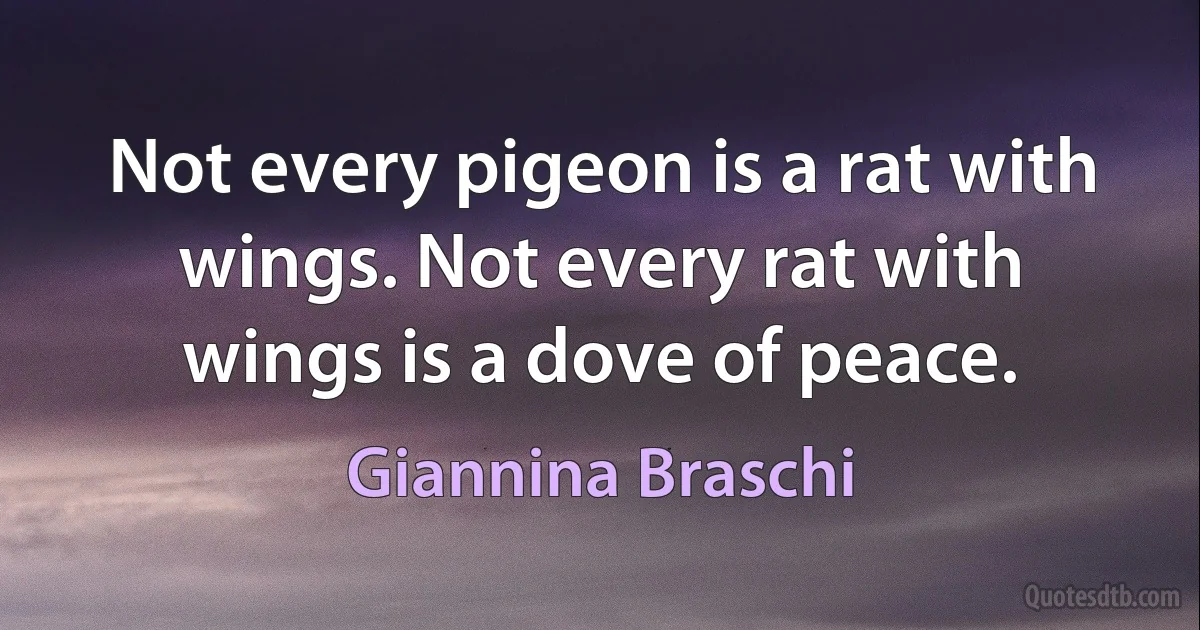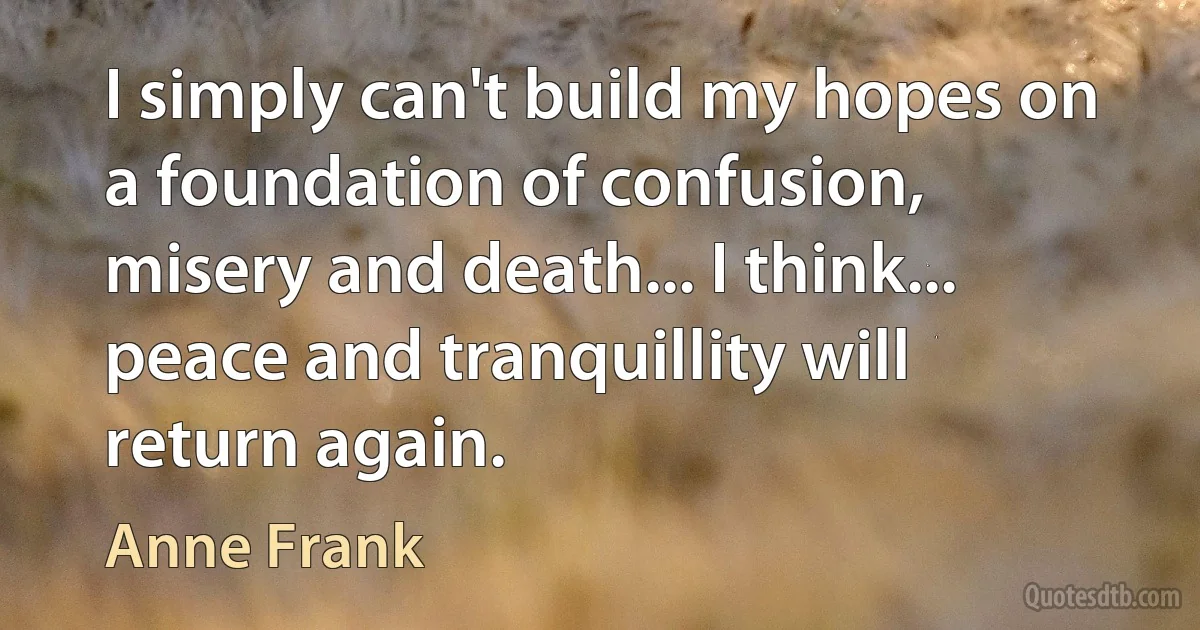Peace Quotes - page 100
I'm torn by two perspectives in this regard. One is that the Palestinians have no interest whatsoever in establishing peace, and that the pathway to peace is almost unthinkable to accomplish. [...] And I look at the Palestinians not wanting to see peace anyway, for political purposes, committed to the destruction and elimination of Israel, and these thorny issues, and I say, "There's just no way." And so what you do is you say, "You move things along the best way you can." You hope for some degree of stability, but you recognize that this is going to remain an unsolved problem. We live with that in China and Taiwan. All right, we have a potentially volatile situation but we sort of live with it, and we kick the ball down the field and hope that ultimately, somehow, something will happen and resolve it.

Mitt Romney
Much of his work he did while confined to his bed. He was always an invalid, always obliged to take great care of himself, living constantly with death just before him, never idle a moment for fear his work would not be done. Probably no man ever lived who assailed the Church and the State with the same wit and keenness that was always at Voltaire's command; and yet in spite of this he managed to live comfortably, accumulate riches and die in peace.

Clarence Darrow
The Synod Fathers spoke of the importance of respect for religious freedom, viewed as a fundamental human right. [202] This includes "the freedom to choose the religion which one judges to be true and to manifest one's beliefs in public”. [203] A healthy pluralism, one which genuinely respects differences and values them as such, does not entail privatizing religions in an attempt to reduce them to the quiet obscurity of the individual's conscience or to relegate them to the enclosed precincts of churches, synagogues or mosques. This would represent, in effect, a new form of discrimination and authoritarianism. The respect due to the agnostic or non-believing minority should not be arbitrarily imposed in a way that silences the convictions of the believing majority or ignores the wealth of religious traditions. In the long run, this would feed resentment rather than tolerance and peace.

Pope Francis
But, good God, what is this when compared with that deep and true music of the wise, whereby the proportions of natural things are investigated, the harmonical concord and the qualities of the whole world are revealed, by which also connected things are bound together, peace established between conflicting elements, and whereby each star is perpetually suspended in its appointed place by its weight and strength, and by the harmony of its lucent spirit.

Robert Fludd
"I have one more message for you men, and for the SS goons who skulk in the woods and in the darkness," Eisenhower said. "It's very simple. We are going to stay here as long as it takes to make sure Germany can never again trouble the peace of the world." He probably expected more cheers then. He got... a few. Lou was one of the men who clapped. The guy in the tanker's coveralls edged away, as if afraid he had something contagious. That saddened him without much surprising him. He wondered how many of the others who applauded there were also Jewish. Quite a few, unless he missed his guess. Yes, Eisenhower had looked for more in the way of approval there. He'd acted professionally grim before. Now his eyes narrowed and the corners of his mouth turned down. He wasn't just grim any more; he was pissed off.

Harry Turtledove
Simple-minded beyond the experience of Wall Street or State Street, he resorted, like most men of the same intellectual calibre, to commonplaces when at a loss for expression: "Let us have peace!" or, "The best way to treat a bad law is to execute it"; or a score of such reversible sentences generally to be gauged by their sententiousness.

Henry Adams
Rawls resorted to Hegel in his internal reflections on a constitutional state. On the plane of inter-state relations, Kant remained his philosopher of reference, as the theorist of conditions for a perpetual peace. So too for Habermas. But since Kant failed to envisage the necessary legal framework for a cosmopolitan order, as it started to take shape through the permanent institutions of the United Nations, Habermas, when he came to review the progress made since 1945, also looked towards the philosopher of objective idealism. Measured against the sombre background of the disasters of the first half of the twentieth century, he decided, ‘the World Spirit, as Hegel would have put it, has lurched forward'. As we have seen, Bobbio was responsible for the most pointed appeal to Hegel of all. In one sense, he was more entitled to do so.

Perry Anderson



